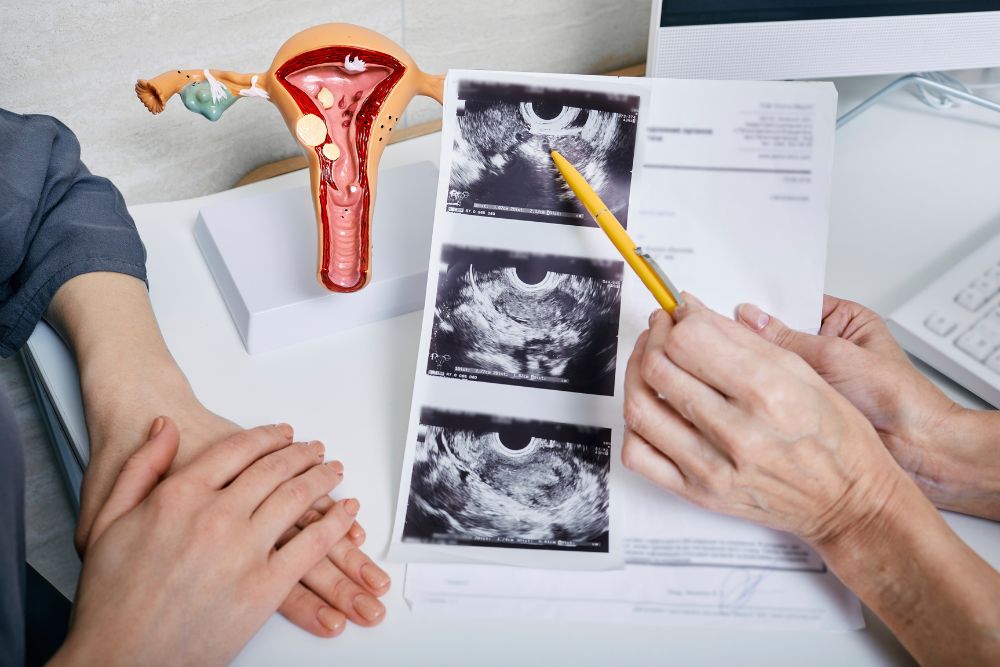How Fibroids Can Affect Fertility And What You Can Do About It

Uterine fibroids are common and can cause symptoms like heavy bleeding or pelvic pain, though many women don’t realize they have them until an ultrasound reveals their presence. While fibroids don’t always interfere with fertility, in some cases, they can contribute to challenges when trying to conceive. Talking with a reproductive specialist can help you understand how fibroids may affect your fertility and what treatment options are available.
How Fibroids Develop
While the exact cause of uterine fibroids is unknown, they're believed to be influenced by genetics and hormones, particularly estrogen and progesterone. These hormones fluctuate during the menstrual cycle and pregnancy and can stimulate the growth of fibroids. They typically grow during a woman’s reproductive years and shrink after menopause when hormones decline. Fibroids vary in size and shape, with some growing slowly, others quickly, and some even shrinking on their own.
There are three different types of fibroids: submucosal, intramural, and subserosal. Submucosal fibroids are located in the uterine cavity, which can significantly impact fertility. Intramural fibroids grow in the muscular wall of the uterus and can also affect fertility, but less so than submucosal fibroids. Finally, subserosal fibroids are found on the outer surface of the uterus and generally don’t impact fertility.
Fibroids and Fertility
Fibroids can impact fertility in several ways, including:
- Distorting the uterus: Fibroids can change the shape of the uterus, which may impede sperm movement, fertilization, and implantation.
- Blocking the fallopian tubes: Large fibroids can block the fallopian tubes, preventing the egg and sperm from meeting.
- Affecting the uterine lining: Fibroids can impact the uterine lining, impacting implantation or potentially increasing the risk of miscarriage.
- Altering blood supply: Fibroids can disrupt normal blood flow to the uterus, which can affect a developing embryo.
Although fibroids can affect fertility, many women with fibroids can still conceive and carry a pregnancy to term.
Fibroid Treatment Options
There are various treatment options available for fibroids that can help improve fertility, such as:
- Myomectomy: During this procedure, fibroids are surgically removed while preserving the uterus, so a woman can still become pregnant.
- Medical management: Certain medications can help manage symptoms such as heavy bleeding and pain, but they don't directly treat the fibroids themselves.
- Minimally invasive procedures: Uterine artery embolization (UAE), radiofrequency ablation (RFA), and magnetic resonance-guided focused ultrasound (MRgFUS) are minimally invasive procedures that can shrink or destroy fibroids. Additionally, laparoscopic surgery, also minimally invasive, can be used to diagnose and treat fibroids.
- Assisted reproductive technology (ART): ART, such as in vitro fertilization (IVF), can help patients with uterine fibroids grow their families.
Every person with fibroids may experience them differently. That’s why it’s essential to consult a fertility specialist who can help you explore treatment options tailored to your needs, allowing you to grow your family with confidence.
Schedule an Appointment with a Fertility Specialist
Fibroids can be challenging to navigate, but having them doesn't mean you can't have a healthy pregnancy and delivery. At Washington Fertility Center, our experienced reproductive specialists can recommend the best treatment for fibroid removal and help you conceive. For more information or to schedule an appointment, contact us today.